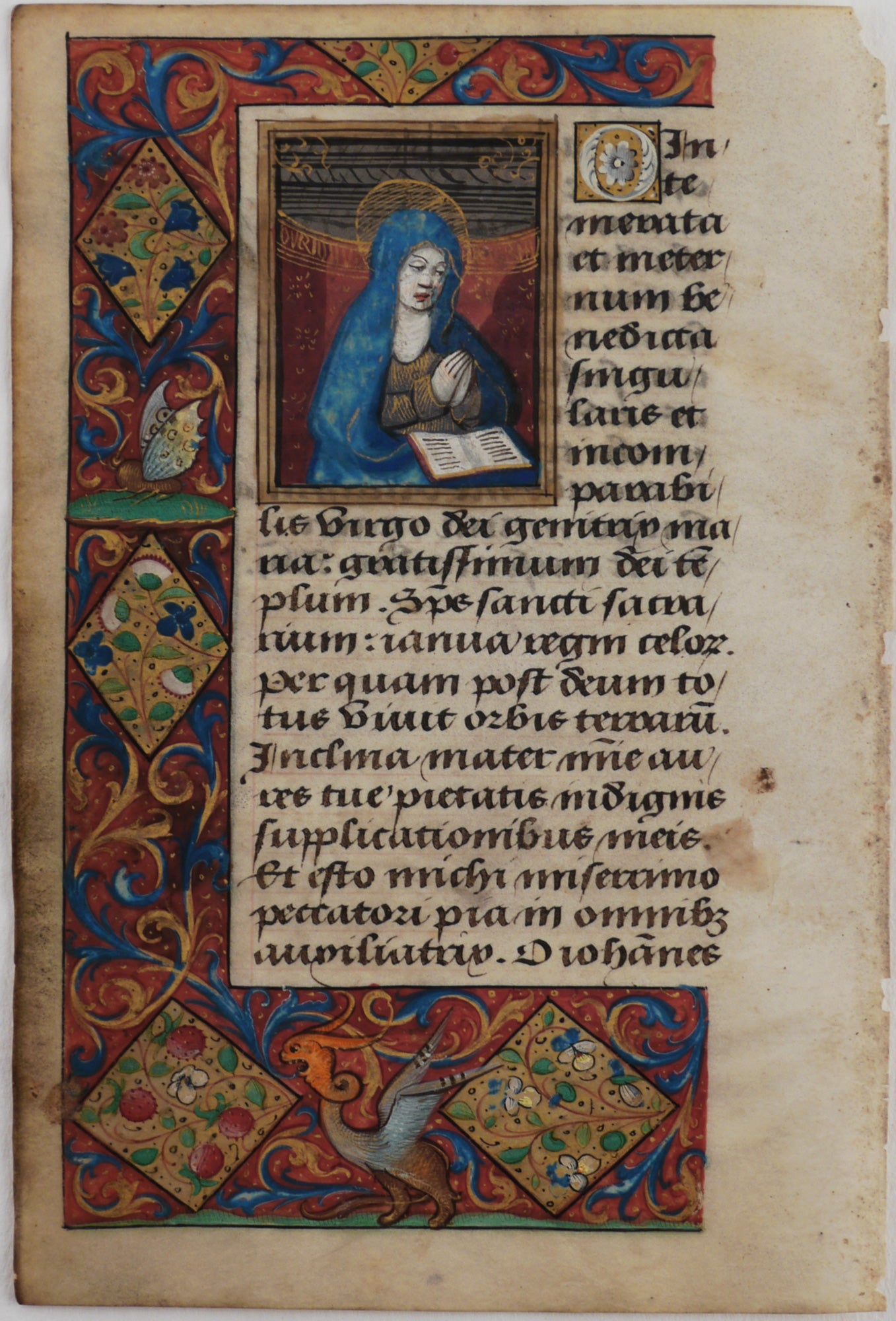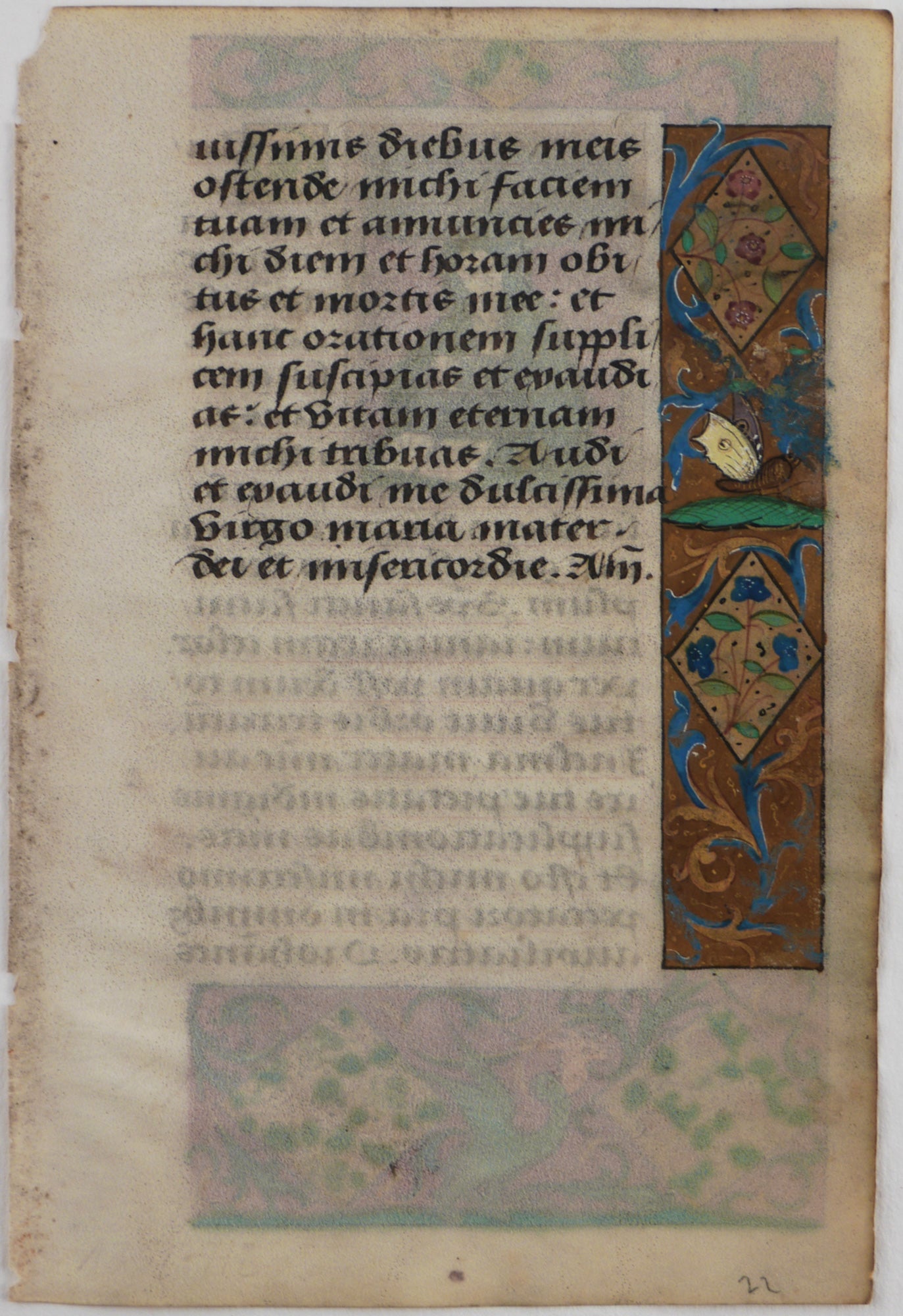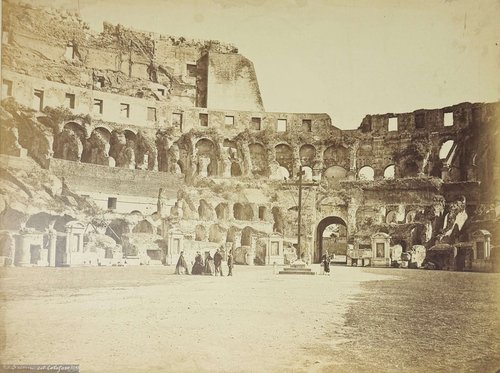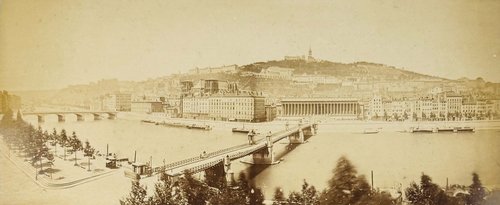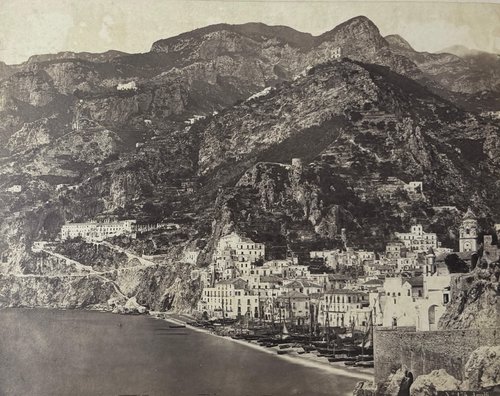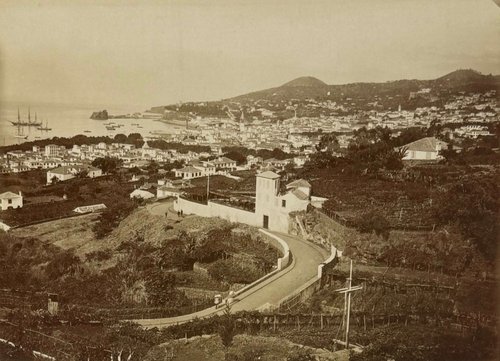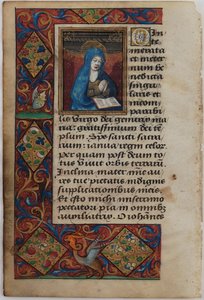
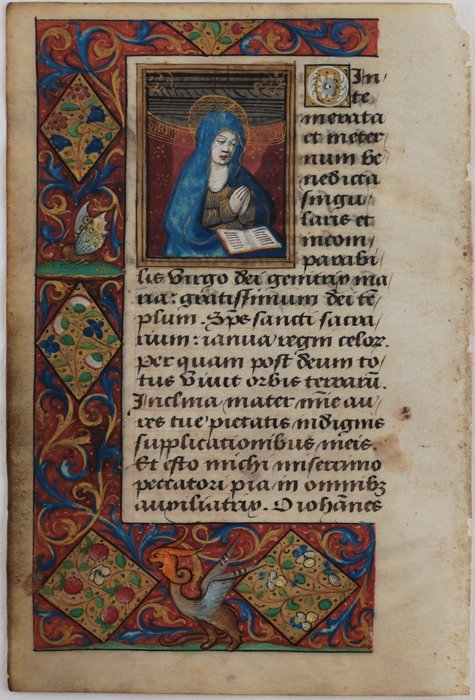
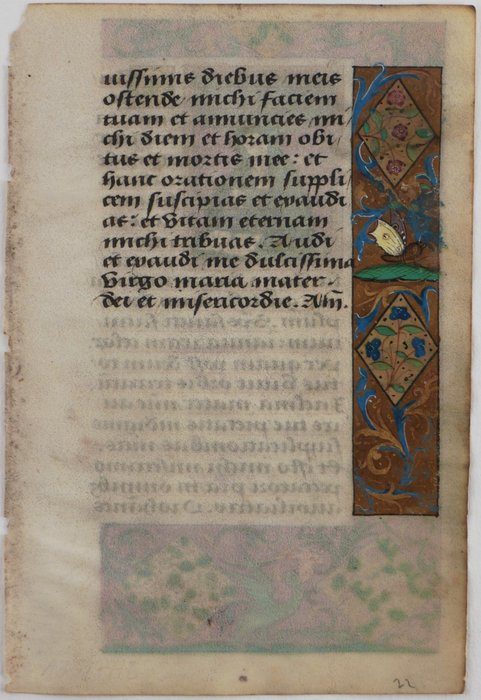
#MB19
Ca. 1510-1520
Single leaf, manuscript on vellum, written/decorated area ca. 14,5x8 cm (ca. 5 ½ x 3 ¼ in); miniature size ca. 4,8x3,5 cm (1 ¾ x 1 3/8 in). Text in Latin. Recto with 22 lines, verso with 12 lines. Text in brown ink, recto with a two-line initial in white on gold ground with a floral decoration; both recto and verso with elaborate ornamental borders decorated with flowers, insects and mythical animals (illuminated in red, blue, green, orange, and gold), border on recto is from ca. 0,9 cm to ca. 2,8 cm wide (1/4 to 1 1/8 in), border on verso ca. 2 cm (3/4 in) wide. Very lightly toned, margin slightly soiled, miniature with a small pigment loss, colour on the border on verso slightly smudged, otherwise a very good leaf.
A beautiful illuminated manuscript leaf from the “Prayers” part of a Book of Hours created in the studio of Jean Coene IV, a prominent French book artist of the early 16th century. The leaf contains the first lines of a prayer to the Blessed Virgin Mary: “O Intemerata, et in aeternum benedicta, singularis et incomparabilis virgo Dei genitrix Maria, gratissimum Dei templum, sp[iritu]s sancti sacrarium, janua regni cael[oru]m, per quam post Deum totus vivit orbis terraru[m]. Inclina mater m[isericordi]a aures tuae pietatis indignis supplicationibus meis, et esto mihi miserrimo peccatori pia, [et propitia] in omnibus auxiliatrix. O Iohanes…” (O Untouchable, and forever blessed, singular and incomparable virgin Mary Mother of God, most grateful temple of God, the sacristy of the Holy Ghost, the gate of the kingdom of heaven, by whom next unto God the whole world liveth, incline O Mother of Mercy the ears of thy pity unto my unworthy supplications, and be pitiful to me a most wretched sinner, and be unto me a merciful helper in all things. O most blessed John…).
The leaf is illustrated with a miniature portrait of the Blessed Virgin Mary, dressed in a blue gown and praying with the prayer book on her lap. The colourful border surrounding the text is decorated with floral ornaments, and houses a butterfly and a mythical animal resembling a dragon. The verso of the leaf contains the last lines of a previous prayer from the book of hours, also dedicated to the Blessed Virgin Mary (“Obsecro te…”), the lines are: …novissimus diebus meis ostende michi faciem tuam et annuncies michi diem et horam obitus et mortis mee; et hanc orationem supplicem suscipiat et exaudiat, et vitam aeternam mihi tribuat. Audi, et exaudi me dulcissima virgo Maria mater Dei, et misericordiae, Amen” (…that he may graciously and meekly hear, and receive this prayer, and give me life everlasting. Hear and make intercession for me most sweet Virgin Mary Mother of God, and Mercy. Amen). Overall a fine leaf with a beautiful bright miniature.
“Jean Coene (also known as the Master of the Paris Entries), [was] a prolific artist who was active in Paris for the French court under Louis XII (1498-1515) and François Ier (1515-47). He was originally named after the manuscripts he painted recording the royal entries into Paris of Mary Tudor in 1514 (London, British Library, Cotton MS.Vespasian B II) and Claude de France in 1517 (Paris, BnF., fr.5750), until his name was discovered in the painted frame on a leaf with the Crucifixion from a Missal, inscribed with ‘De Jos Coene’ (Leuchtendes Mittelalter, Neue Folge 1, 1997, ill. On p.320). He collaborated regularly with the Pichore workshop who dominated Parisian book illumination in the first decades of the sixteenth century (C. Zöhl, Jean Pichore, 2004). Although his compositions and figures are related to those of Pichore, he is easily distinguishable by characteristic faces with swollen eyes, pronounced red lips and his generous use of gold highlighting. His quick painting technique and the careful finish of his miniatures led him to be one of the most successful artists for a high-ranking clientele in early sixteenth-century Paris” (Sotheby’s).

